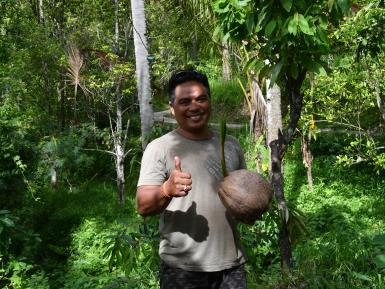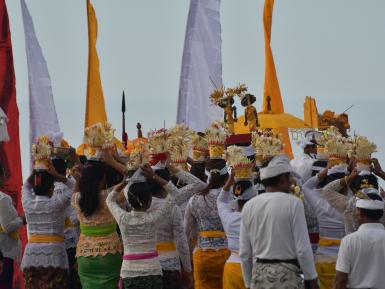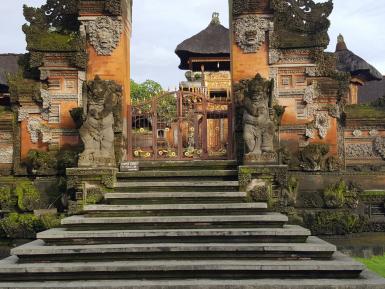
Production: Bali boasts two main rice harvests each year, known as "sawah," with a third, smaller harvest called "tegal." The island utilizes a unique system of Subak, a traditional cooperative irrigation system, which dates back over a thousand years. This communal approach ensures efficient water distribution and sustainable farming practices.
Cultivation Process: From planting to harvest, rice cultivation is a labor-intensive process. Farmers employ traditional methods, often guided by lunar cycles, to ensure an abundant yield. These fields, meticulously cared for by generations of skilled hands, shape the breathtaking scenery that Bali is renowned for.
Cultural Significance: Rice is more than sustenance; it's woven into the fabric of Balinese spirituality and daily life. Offerings of rice, along with other symbolic elements, are made in temples, ceremonies, and daily rituals. The Subak system itself is recognized by UNESCO as a Cultural Landscape, underlining its significance.
Consumption: Rice is the cornerstone of the Balinese diet, served in various forms from steamed to fried, and often accompanied by flavorful side dishes. Traditional dishes like Nasi Goreng (fried rice) and Nasi Campur (mixed rice with various toppings) are beloved staples, showcasing the culinary artistry that centers around this humble grain.
Challenges and Innovation: Despite its central role, modern challenges such as urbanization and changing agricultural practices are impacting rice production in Bali. Efforts to balance tradition with innovation are underway, as farmers incorporate sustainable techniques and new technologies to ensure the continued prosperity of this vital crop.
In every grain of rice that graces a Balinese table, there lies a story of dedication, tradition, and the enduring spirit of a people deeply connected to the land. It is this profound relationship with rice that continues to shape the cultural and agricultural landscape of Bali.










